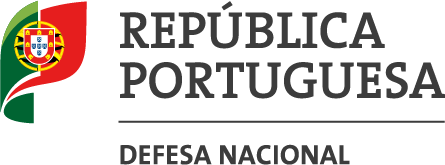The Geopolitics of National Detached Forces: analysis of the political factors underpinning Portugal's participation in international missions
The aim of this project is to analyze the political factors underpinning the deployment of Portuguese Armed Forces in international missions, in close articulation with the definition of national interest, as well as the main axes of Portuguese foreign policy. This general reflection constitutes a first step in a broader research strategy envisaging at understanding Portugal’s geostrategic interests and practices, enabling a more nuanced analysis of how national goals regarding the participation in international missions have been defined and of how priorities for action in this dimension have been managed in articulation with Portugal’s security and defense needs and capacities. In order to fulfil this transversal objective, the project is divided into three major dimensions of analysis: 1) Contextualization and strategic mapping, centered on the definition of national interest and on the articulation between the Ministry of National Defense and the Ministry of Foreign Affairs concerning the definition of Portugal’s foreign, security and defense policy goals; 2) Definition of objectives, assessment of capabilities and decision-making regarding the deployment of national forces; 3) Analysis of case studies corresponding to Portugal’s participation in international missions, in different regional, institutional and operational contexts, since 2000, namely in Afghanistan [NATO International Security Assistance Force (2001-2015)], in the Central African Republic [MINUSCA (2014-)] and the Mediterranean Sea [EUNAVFOR MED Operation SOPHIA (2015-2020)]. The analysis of these dimensions is paramount to answer the research question and to foster a holistic though sustained understanding of the relevant political elements and dynamics in decision-making processes regarding Portugal’s participation in international missions.
The project’s outputs aimed to contribute to the advancement of knowledge in this area, but also to support the political decision-making process, by identifying strategic issues of national interest, as well as key political factors regarding the participation of Portugal in international missions. These objectives conducted to the following outputs:
• Roundtable “A Participação de Portugal em Missões de Paz: objetivos prioridades e capacidades”, in collaboration with the Jean Monnet Centre of Excellence of the University of Coimbra. February 25th, 2021.
• Report of the Rountable “A Participação de Portugal em Missões de Paz: objetivos prioridades e capacidades”, in collaboration with the Jean Monnet Centre of Excellence of the University of Coimbra. March 2021. Available at: https://www.ces.uc.pt/ficheiros2/files/Mesa%20Redonda_Relatorio_PT_final.pdf
• Policy brief “A Participação de Portugal em Missões de Paz: objetivos prioridades e capacidades”, in collaboration with the Jean Monnet Centre of Excellence of the University of Coimbra. March 2021. Available at: https://coe.uc.pt/wp-content/uploads/2021/06/Mesa-Redonda_PolicyBrief_PT_final_17mar2021.pdf
• Roundtable “A Geopolítica das Forças Nacionais Destacadas: A Participação de Portugal em Missões Internacionais” – public presentation of the project’s results. July 2021. Available at: https://ces.uc.pt/pt/agenda-noticias/agenda-de-eventos/2021/a-geopolitica-das-forcas-nacionais-destacadas
• Dias, Vanda Amaro; Freire, Maria Raquel (2021) “A Participação de Portugal em Missões Internacionais e a Concretização do Interesse Nacional: Tendências, Retorno Político e Recomendações”, IDN E-Briefing Papers. Lisboa: Instituto de Defesa Nacional. ISSN: 2184-8246. Available at: https://www.idn.gov.pt/pt/publicacoes/ebriefing/Documents/E-Briefing%20Papers/EBriefingPapers_13ago2021.pdf
• Dias, Vanda Amaro; Freire, Maria Raquel; Barradas, Joana Rocha (2021) “A Participação de Portugal em Missões Internacionais como Eixo Estratégico de Política Externa”, Nação e Defesa, 159, 119-150. Available here.


